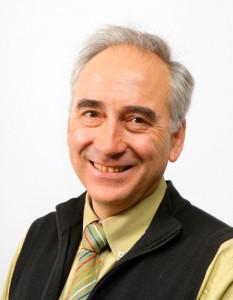Prof. M. Ricardo Ibarra "Functional nanostructures"
Objective:
This is an introductory course to the new phenomena that take place at the nanoscale. New functionalities are described and some applications are reported in order to introduce to the student in field of nanotechnology, the new experimental techniques required and the strong implications in de develop of new technologies. Special emphasis is considered in the field of nanomedicine.
Subjects:
I.-Introduction
- Nanoscience & Nanotechnology
- Nanomaterials
- Nanomagnetism
- Superconductivity and the nanoscale
II.- Nanofabrication
- Nanoparticles
- Thin films
- Focused beams deposition
III.- Nanomaterials for electronics and energy
- Transport properties magnetic and sensors, magnetic storage and logic.
- Thermospin conversion
IV.- Nanobiomedicine (6 h)
- New therapy approaches
- Magnetic Hyperthermia
- Biosensors
- MRI tomography
Prof. M. Ricardo Ibarra

Professor M. Ricardo Ibarra was born in Baza (Granada, Spain) in 1955. In 1979 moved to the University of Zaragoza, where he obtained the PhD in Physics in 1983, under the supervision of Prof. A. Del Moral. He has been developing his academic and research activity as Full professor at the University of Zaragoza since 1995. He was head of Condensed Matter Physic Department (1993-2000), commissioned for the foundation of the Institute of Nanoscience of Aragon (INA) in 2000, and Director since its foundation in 2003. Furthermore, he is Director of the Advanced Microscopy Laboratory (LMA) since 2007.
His research has been developed in Magnetism and Magnetic Materials. Along the past few years his research activity is focused on the magnetic properties of nanostructured materials and the application of nanotechnology in biomedicine.
He has coordinated a large scale national and international R&D projects on nanotechnology and the application in biomedicine. He is first author or co-author of more than 400 publications -407 papers belonging to the Science Citation Index (17 of them cited more than 100 times). He has an H-index of 48 according to the ISI Web of Knowledge database on 17th October 2014.
He has been invited to many relevant Congresses and Workshops during the last years and selected as Member of several Advisory Committee Boards. He is head of the Magnetism Section of the European Physical Society since 2000, and he was awarded Doctor Honoris Causa by the AGH University (Krakow - Poland) in 2008.